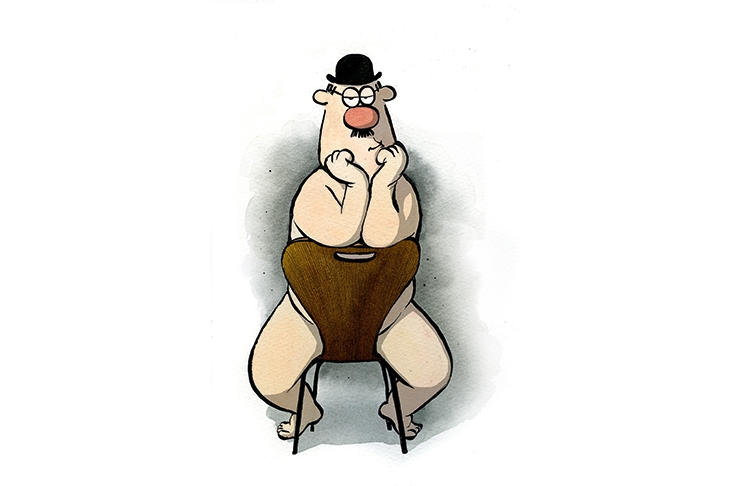I recently came across the Small Robot Company, a British agricultural robotics start-up. Their vision is that with smart, autonomous mini-tractors, the monoculture which has Mondrianised our landscape could be replaced by something more diverse. Farmers could plant multiple crops in the same fields, and practise new forms of rotation. Such an approach would also be sparing in its use of chemicals: rather than spraying fields indiscriminately, the robots would scuttle about like mechanical serfs, treating only areas that need it.
Though a great-uncle was a world authority on Welsh Black Mountain sheep (he once gave a long and involved answer to a child’s joke question ‘Why do white sheep eat more than black sheep?’ — not knowing that the joke answer is ‘Because there are more of them’), I know absolutely nothing about farming. But even I know there’s a thing called ploughing.
‘Don’t you need big tractors to plough things?’ I wondered aloud to the robot people. ‘Actually, ploughing is often unnecessary,’ I was told. ‘People may do it because everybody else does it.’
‘Hold on a sec,’ I thought. ‘These people are insane. Are we saying farmers routinely spend days ploughing for no reason at all? They can’t be buying Massey-Fergusons simply for the sadistic joy of annoying motorists by driving at 10 mph while spreading crap all over the road (although from what I remember of rural psychology this is by no means impossible).’
‘It’s not as simple as that,’ they patiently explained. ‘But ploughing is overused.’
So, at the risk of my browser being flooded by ads for mangelwurzels for the next year, I went online to find out about the ‘no-till farming method’; about Plowman’s Folly by Edward H. Faulkner; about shizen noho or the ‘do-nothing’ farming philosophy of Masanobu Fukuoka; even ‘how to get better flavours with indoor no-till cannabis gardening’.
The reason I was interested was psychological, not agricultural. It intrigued me to ponder how many billion man-hours through history might have been devoted to an often pointless activity through mere force of habit or fear of breaking ranks.
Think about it. Once your neighbours all plough their fields, ploughing becomes a form of reputational insurance — a one-way bet like Pascal’s wager. If you plough your fields, when your crop fails you’re merely unlucky; if you don’t plough and your crop fails, you’re blameworthy, and deserve to go hungry for being lazy.
Never forget — in business, in medicine, in agriculture, in politics, perhaps in any complex self-regulating system — the best course of action is often to take no action at all, or to intervene very little. But this is also the hardest course to defend, and (in medicine, certainly) the most likely to get you blamed or sued. By far the best manager I have ever worked with is judiciously idle. If he suggests doing something, you know without question that it is worth doing.
All salaried jobs are biased against inaction. Yet, in an age of constant disruption and over-abundance of data, choosing what to ignore is a much more valuable quality than overreaction. Sir John James Cowper-thwaite, as financial secretary the architect of Hong Kong’s prosperity, understood this: he banned the collection of economic statistics, since they might encourage people to interfere in the economy.
It should not pass unnoticed that since the British parliament has been ‘paralysed’ by Brexit debates, the economy has performed magnificently. Perhaps the House of Commons is the first place we should legalise no-till cannabis.







Comments